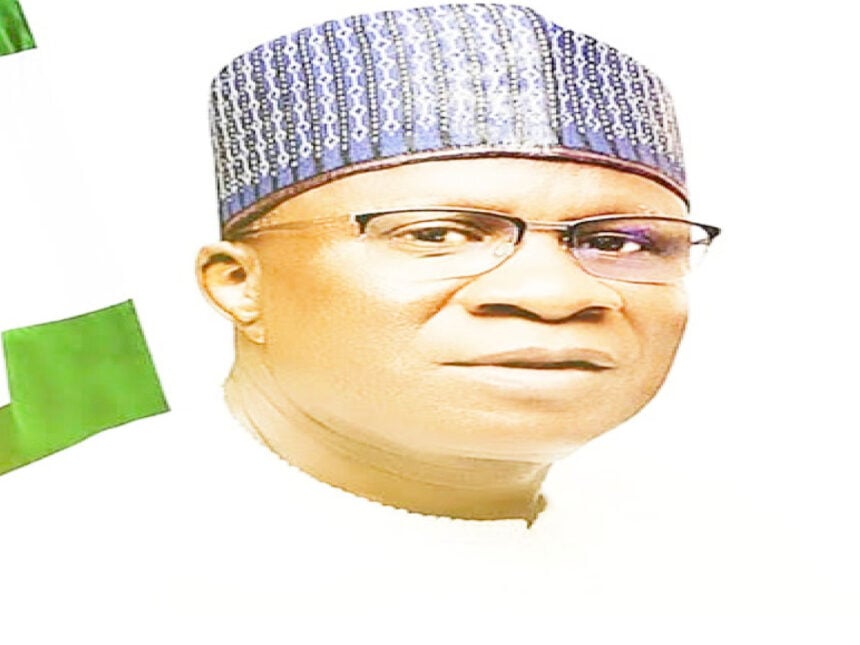Abuja Bureau Chief, LEON USIGBE analyzes the impact of the creation of the Ministry of Regional Development on the Niger Delta.
The transformation of Nigeria’s Ministry of Niger Delta Affairs into the Ministry of Regional Development (MRD) in October 2024 has introduced a new administrative architecture with far-reaching implications for the Niger Delta. While the move signals a broader national strategy to address regional disparities across the country, its impact on the Niger Delta – a region with a long and fraught history of underdevelopment, environmental degradation, and youth unrest—must be critically assessed. At the core of this transformation is the Ministry’s new mandate: to coordinate regional development efforts across the six geopolitical zones through a network of development commissions. These include the long-established Niger Delta Development Commission (NDDC), now integrated into the MRD framework, alongside newer bodies such as the North-West Development Commission (NWDC), South West Development Commission (SWDC), and the South-East Development Commission (SEDC).
Strengthening institutional coordination and oversight
One of the immediate benefits of integrating the NDDC into a broader regional development ministry is enhanced oversight and policy coherence. For years, the NDDC has been criticized for poor project implementation, corruption, and a lack of synergy with other federal and state development programmes. With the MRD now serving as a coordinating hub, there is potential for better alignment of development priorities, improved monitoring, and reduced duplication of efforts. The MRD’s centralised approach also opens up the possibility for resource pooling and shared learning across regions. Infrastructure projects that are technically or logistically similar – such as rural electrification or water supply schemes – can now benefit from standardization and economies of scale. This may improve project efficiency and delivery timelines in the Niger Delta, where many communities remain cut off from basic services.
Reaffirming focus on the Niger Delta’s core challenges
Despite the expanded national focus, the Ministry has been careful to reaffirm its commitment to the Niger Delta. Minister Abubakar Momoh has emphasized that the NDDC remains central to the Ministry’s activities, citing ongoing road and electrification projects, vocational training programmes, and environmental remediation efforts. Indeed, initiatives like the Gberegolor-Ogriagbene Road, water supply schemes, and solar streetlight installations reflect tangible benefits for local communities. Furthermore, youth empowerment schemes – such as ₦250,000 startup grants for vocational trainees – are critical in a region plagued by high unemployment and militancy risks. These efforts underscore that the MRD, while broader in scope, is still positioned to be a vehicle for targeted development in the Niger Delta. It retains a specialized focus through the NDDC, which continues to implement context-specific projects while benefiting from better coordination and political support at the federal level.
Engaging local communities and civil society
One of the more promising shifts introduced under the MRD model is stronger community representation and bottom-up governance. Local engagement platforms – such as Community Monitoring Advocacy Groups (CMAGs) and partnerships with organizations like Stakeholder Democracy Network (SDN) and Partnership Initiatives in the Niger Delta (PIND) – are helping to amplify citizen voices, increase accountability, and improve local buy-in for development projects. This participatory governance model is crucial for the Niger Delta, where distrust of government institutions runs deep due to decades of perceived neglect and exploitation. By involving communities in project planning and monitoring, the MRD can begin to rebuild public trust and ensure that interventions genuinely reflect local needs. Furthermore, initiatives that empower women and youth – such as climate-friendly fish smoking and soap-making enterprises – enhance grassroots economic resilience and promote inclusive development. These programmes are not only socially impactful but also serve as peacebuilding tools in a region historically prone to unrest.
Risks: funding, duplication, governance
Despite its promise, the MRD’s model is not without risks – particularly for the Niger Delta. First and foremost is the issue of funding constraints. The Ministry currently operates on a meagre budget that is now expected to serve multiple regions. Unless significantly expanded, financial limitations could dilute the intensity of interventions in the Niger Delta. Moreover, the creation of multiple regional commissions, including proposals for a separate South-South Development Commission, raises concerns about mandate duplication. Overlapping responsibilities between commissions could breed bureaucratic inefficiencies, delay project implementation, and trigger turf wars among institutions vying for relevance and control. Corruption and mismanagement remain another threat. Prior to now, the NDDC’s track record has been marred by scandal, and without deep institutional reform, the expanded MRD risks inheriting and multiplying these inefficiencies. Strong internal controls, transparent procurement processes, and active civil society oversight are essential to prevent a repeat of past failures. Additionally, the capacity and commitment of MRD staff will determine how well the Ministry delivers on its expansive mandate. Ensuring that staff are well-trained, accountable, and responsive to the unique challenges of the Niger Delta is a non-negotiable requirement for success.
The strategic value of regional equity
Despite these challenges, the new Ministry offers a strategic advantage: it situates the Niger Delta’s development within a broader national narrative of equity and inclusion. This is important both symbolically and politically. For decades, the Niger Delta has felt sidelined, often forced to agitate violently for attention. Integrating its development into a national framework sends a signal that its grievances are being institutionalized rather than ignored. Simultaneously, the MRD offers a platform for cross-regional collaboration. The Niger Delta shares several challenges with other parts of the country – such as youth unemployment, degraded infrastructure, and environmental stress. By connecting the Niger Delta’s experience to broader national challenges, the MRD can foster knowledge exchange, innovation, and solidarity.
Cautious optimism for the Niger Delta
The establishment of the Ministry of Regional Development represents a new chapter in Nigeria’s regional development strategy. For the Niger Delta, it offers a chance to reset the narrative – from one of marginalization and inefficiency to one of strategic inclusion, transparency, and participatory development. Yet, this promise can only be realized if the Ministry is empowered with adequate funding, political will, and institutional discipline. Most importantly, its success in the Niger Delta will depend on how well it navigates the region’s complex socio-political landscape – balancing federal oversight with grassroots engagement, and national equity with local specificity. In this context, the MRD’s creation is not a silver bullet, but it is a structural opportunity that, if properly leveraged, can significantly accelerate sustainable development and peace in one of Nigeria’s most critical yet historically underserved regions.
READ ALSO: Niger Delta cleanup imperative for blue economy devt — Expert






